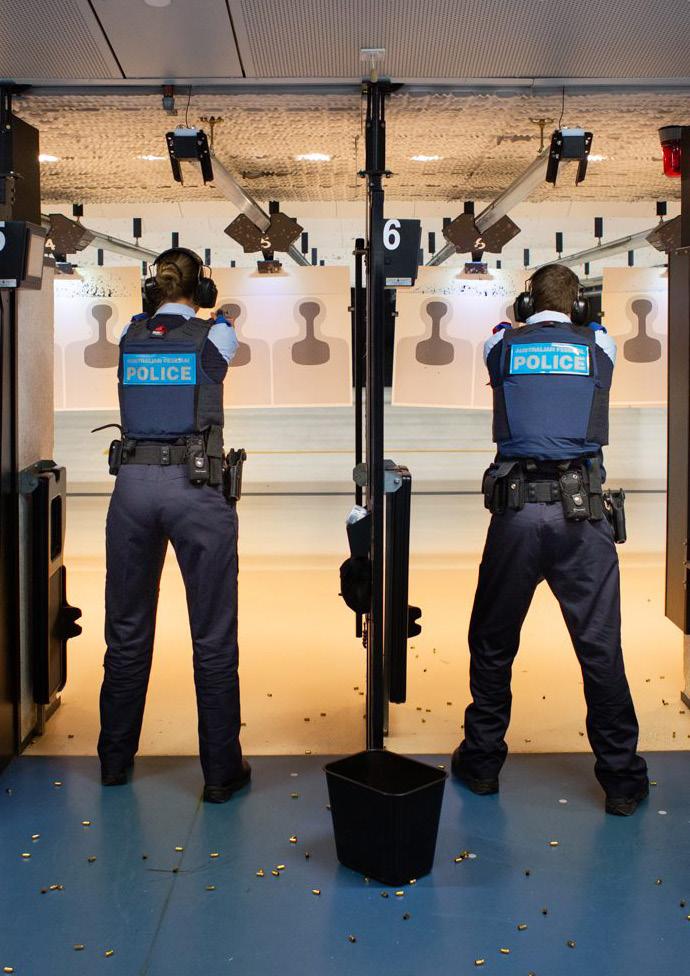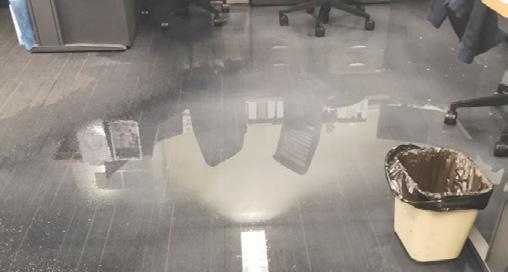ACT Election Campaign 2024







The AFPA is a registered organisation and an autonomous sub-branch of the Police Federation of Australia. The AFPA represents the industrial, political, and professional interests of members of the AFP, law enforcement officials in the Australian Criminal Intelligence Commission, and members of the Department of Parliamentary Services. Our members provide an essential service to Australia. They are the backbone of the Commonwealth’s principal law enforcement agency, performing crucial investigative, intelligence and national security functions.
• Providing community policing services to the Australian Capital Territory and other territories, including Christmas Island, Cocos (Keeling) Islands, Norfolk Island and Jervis Bay.
• Enforcing Commonwealth laws that combat complex, transnational, serious and organised crime, child exploitation, fraud, corruption, and cybercrime.
• Protecting Australians and Australian interests from terrorism and violent extremism.
• Removing wealth and property from criminals that have been illegally obtained.
• Protecting Commonwealth infrastructure, including designated airports, Parliament House, and embassies.
• Protecting domestic and foreign dignitaries, including the Governor-General, Prime Minister, and ambassadors.
• Protecting at-risk individuals.
• Representing Australian police and law enforcement at an international level.
• Developing unique capabilities and exploiting advanced technology to support Australia’s national interests.
AFPA PRESIDENT FORWARD

The men and women of the Australian Federal Police and ACT Policing work tirelessly to keep Canberrans safe and one of the safest cities in Australia.
We cannot rest on our laurels and reputation as a safe city. We have first hand experience that crime is becoming more complex and violent, and we need a police service that can respond dynamically to these challenges. I know the workforce is up for this challenge, but is the organisation and future government?
To strengthen ACT Policing and best equip them in the endless battle against crime, we are asking all candidates and political parties to provide a clear position and commitment on each of the policies outlined in this document.
The AFPA has a significant membership in ACT Policing, and we will inform all ACT Policing appointees, their families and members of the community who support the work of police; each party’s position on these critical issues that impact the AFP community.
“I know the workforce is up for this challenge, but is the organisation and future government?”
For too long, the ACT Policing workforce has been asked to do more with fewer or inadequate resources. This takes its toll mentally, physically, and operationally. Our members are suffering due to heavy workloads, limited staff, and poor facilities.
We are asking all candidates for help to ensure that ACT Policing is adequately resourced, funded and supported.
We are also asking all candidates to recognise the outstanding work performed by ACT Policing each and every day. They are the reason Canberra is regarded as a safe city. Finally, we are asking you to support those who protect you.

Alex Caruana President – Australian Federal Police Association
AFPA IS SEEKING
• Bring forward the current ACT Government funding announced in 2023 for the recruitment of 126 ACT Policing personnel over the next five years to three years.
• A permanent commitment and funding model for the Police, Ambulance and Clinician Early Response (PACER) team, with expansion to a fulltime 24/7/365 service.
• A commitment and appropriate funding to ensure that all ACT Policing stations are ‘fit for purpose’ and ‘future-proofed’ as operational police stations.
- The establishment of a new ACT Policing Headquarters by 2027.
- The establishment of a new City Police Station, including Watch House, by 2027.
- A funding commitment for the refurbished and improvements to Gungahlin Police Station by 2025 to ensure it’s ‘fit for purpose’ and ‘future proofed’.
• Funding and resources for the establishment of a permanent Operation TORIC team.
• A scoping study for the implementation of a PACER-model to respond to incidents of family violence and sexual assault.
• An independent bail and sentence review to ensure that ACT bail and sentencing decisions are consistent with other jurisdictions in Australia and aligns with community expectations.
• Introduction of “Jack’s Law” which gives police powers to search or ‘wand’ people who they suspect may be in possession of a knife or weapon. Funding will be required to fit-out police with metal detection wands.
For too long, ACT Policing has been under-resourced, with the jurisdiction traditionally last when compared with other state and territories on police officers per 100,000 population data.
Note: Northern Territory not represented on the chart due to a much higher rate of over 700 police officers per 100k population. This is due to the large geographical size of the Northern Territory, and low population when compared to other jurisdictions
This has taken an incredible toll of the hard and overworked ACT Policing members whose commitment towards protecting the ACT community is second-to-none. They are the reason why Canberra has a reputation of a ‘safe city’, and that crime rates remain relatively stable.
Over the last few years, the ACT has experienced significant population and suburban growth. Unfortunately, this growth has not reflected in additional police officers for the ACT. ACT Policing has experienced a growth in ‘calls to service’, which puts additional pressure on the already ‘thin blue line’.
Our members are committed, and they often put their job, their colleagues and the ACT community before themselves. This has a detrimental affect on their psychological and physical health, and we’ve seen firsthand members struggling with psychological injuries, or over-extending themselves physically to ensure Canberra remains a safe place to live.


As a result, we are calling on political parties to revise the current commitment of 126 new ACT Policing personnel over five years, to three years.
Police, Ambulance and Clinician Early Response is what PACER stands for. This mental health program is jointly managed by Canberra Health Services (CHS), the ACT Ambulance Service (ACTAS), and ACT Policing.
The multi-agency team consists of a mental health therapist, paramedic, and police officer. The group collaborates to evaluate and support individuals of all ages going through a mental health crisis.
The police assist in ensuring the safety of the community, the PACER team and the client. The physical health issues of the client are checked and treated by the paramedic, while the mental health clinician will evaluate the client’s mental health issues and offer support and appropriate pathways for treatment.
This model was introduced in December 2019 and has been successful from its inception.
The AFPA firmly believes that a mental health crisis is a health matter and requires a health-led response. Putting people in handcuffs and in cells isn’t the right place for many people who have a mental health crisis. Obviously, there will be instances where a criminal act has occurred, and a possible response is that someone will be charged and enter the judicial system. It is our experience that a large percentage of people who have a mental health crisis don’t commit a criminal offence.
Unfortunately, due to current funding, PACER is not full time, and only available from 2pm to 12am, 7 days a week. We know that a mental health crisis does not have set hours, or work to a roster, so why is the team that is designed to respond to these incidents not available 24 hours a day?
We often hear our ACT Policing members talk about how PACER has assisted them, while providing better treatment options for clients. Surely better outcomes for the police, the health system, the judicial system and the community is a large tick-in-box for committed and permanent funding.
The introduction of PACER has also seen valuable police resources be better used. Before PACER, police officers were often used to transport people suffering from a mental health crisis to hospital for assessment. This transport was often in the rear of the cage police vehicle and depending on the situation, sometimes handcuffed to protect them from self-harming, or assaulting the attending officers or hospital staff. Today, PACER takes the lead and will often convey the person to hospital for assessment. PACER has definitely seen clients have a more dignified approached to receiving treatment.
For too long PACER has had an uncertain future. Funding cycles come into play, along with priorities of organisations and even the government of the day. The AFPA believes that PACER is too valuable to be a victim of budget cuts or having funding dry up.

As a result on this uncertainty, we are calling on political parties to commitment to permanent funding of PACER with a further commitment to 24/7 expansion.
ACT Policing for too long has had to manage with poorly maintained facilities which has had a significant impact on the workforce.
Gungahlin Police Station is an example of the neglect ACT Policing has suffered. Members were forced to eat their meals on the same table they use to manage and sort exhibits. Recently, the Gungahlin JESC, which houses the police station was forced to close due to contamination concerns. Also, on top of this closure, City Police Station was closed due to water damage, forcing over 70 police officers to relocate. The issue is that flooding of City Station wasn’t a new event, it happened frequently when it rained, yet it was left to develop into a crisis that led to a dangerous situation for ACT Policing members.



Over the years, the Winchester Police Centre has seen flooding issues, with whole areas being forced to relocate due to water ingress. Again, these issues aren’t new, they are well known, yet each time it occurred a band-aid fix was applied by the ACT Government.
In 2020, the old ACT Policing Traffic Operations Centre in Belconnen was served with an improvement notice by Comcare. The state of the build was dire and should have never been allowed to get to that level of disrepair.
The AFPA is calling for a commitment from all candidates and their parties for the establishment of a dedicated and committed maintenance program that is adequately funded, along with a scoping study to identify how all police stations in the ACT can be future-proofed.



ACT Policing is in dire need of a need ‘futureproof’ headquarters. The current headquarters, the Winchester Police Centre was built in the late 1960’s, and was originally a technical training school, and was repurposed for ACT Policing in 1994.
There are many issues with the building that need fixing. It still has water ingress issues, a poor floor plan and access issues for people with a disability. Simple problems such as not being able to expand the telephone system due to a lack of physical telephones lines meant the introduction of a voice over internet protocol network in the late 2010’s.

The push for a new ACT Policing Headquarters commenced in 2013, and over ten years later, it’s only been recently where discussions have brought a new headquarters to the table.
A new headquarters is paramount for the future of ACT Policing. The new headquarters must be capable of supporting a Police Operations Centre (POC), Joint Intelligence rooms and the option for key community engagement functions such as a state-of-the-art media centre and Public Information Centre (PIC). It must also be located within proximity to the ACT Legislative Assembly and other key Government establishments.
In times of crisis or disaster, the new ACT Policing Headquarters could be a hub where the incident, including media, is managed from. For that reason alone, it’s important that any new ACT Policing Headquarters is up to current technological standards and has the potential to grow with developing technology.
Since its inception in August 2022, Operation TORIC has been a resounding success in targeting recidivist offending and dangerous driving in the ACT.
In late January 2024, Operation TORIC arrested it’s 400th person. This clearly demonstrates that issue of recidivist offending in the ACT and the poor sentencing and bail processes of the ACT judiciary. It also highlights a lack of programs for people when they become eligible for parole or released from prison.
The AFPA believes that Operation TORIC needs to be made a permanent taskforce within ACT Policing and be funded and resourced appropriately. With workloads always increasing, crime becoming more complex and a very junior workforce, taskforces such as Operation TORIC are a valuable resource that can take some pressure of frontline policing.
Operation TORIC can also be seen by the ACT Policing as developing less experienced police and intelligence officers and also provides ACT Policing members with a career path away from general duties policing, without losing them to AFP National.
The AFPA believes that to be successful, Operation TORIC should consist of two Sergeants and 16 Constables. These numbers would provide support to General Duties and Criminal Investigations outside of their own workloads, while also being a visible and reputational presence within the community.
Throughout the history of ACT Policing, these type of operations or taskforces have always been successful, and worthy of investment. Beginning with and leading up to today:
All achieved outstanding results in protecting Canberra and its people. A taskforce or operation that conducts proactive investigations, and intelligence-based, high-impact policing operations to prevent and disrupt crime is required on a fulltime and permanent basis to assist in keeping crime rates relatively stable.
In Australia, approximately 1 in 4 women have experienced violence by an intimate partner since the age of 15.
Last year, 57 women were killed by male violence in Australia. Historically, reports of family violence-related incidents have been steadily climbing in the ACT for years. Between 2022 and 2023, family violence incidents attended by police jumped 20 per cent, and since 2019, the ACT experienced a jump of 35 per cent.
Sadly, the AFPA believes that family violence and sexual assault is under reported in the ACT, and that current support services are stretched by what they can provide within the very limited resources and funding they receive.
An important aspect of investigating family violence and sexual assault is ensuring that victims feel supported when police become involved. This includes support immediately at the time of the incident and continues until the victim is in a place where they decide that they no longer require support.
The AFPA believes that a model like the current PACER model should be scoped and trialled in the ACT for family violence and sexual assault incidents reported to police.
Like PACER, this model would provide immediate and appropriate support to victims of these types of incidents, at the time it was reported to police. The members of this team would consist of police officers who are experienced in investigating family violence and sexual assault, along with a paramedic, who can immediately medically and psychologically check the victim, and a counsellor with experience in family violence and sexual assault to provide expert advice.
Funding and resources should mirror the levels associated with the PACER model, and the trial should last two years to measure its effectiveness.
In the AFPA’s opinion, if this model can save one person, then it’s worth every cent invested by the ACT Government.
The AFPA has been calling on the ACT Government for an independent bail and sentencing review since 2022. For too long the ACT judiciary has handed down light or soft sentences for serious crimes.
The AFPA believes it’s time for the ACT judiciary to put community safety and welfare above criminals but is firstly calling for an independent review of bail and sentencing in the ACT. Bail and sentencing processes are fundamentally flawed and dangerously inadequate. All too often, we are seeing recidivist offenders being released into the community without consideration for the harm they cause.
Bail was once a privilege, but now it seems that you can practically commit any offence, and you’ll have a presumption for being bailed. Bail is an incredibly important aspect of judicial processes and overall human rights considerations, but it needs to be balanced so that the rights of the victim and community are balanced equally and fairly against the rights of the alleged offender. We believe that this balance has moved too far to the presumption of bail and that this movement leaves the community exposed to dangers that could be reduced if the ACT judiciary had a more balanced view of bail.
Operation TORIC has arrested over 400 people. Breaking down those 400 arrests. 57
Good Behaviour Orders On Parole On Bail Arrest Warrants
Those numbers alone should be enough for an independent review to see if the ACT judiciary is doing their job and meeting community expectations.
The AFPA also believes that an independent review will also demonstrate a lack of public accountability in the ACT judiciary where it decides bail for recidivist offenders who put the community in harm’s way.
The AFPA would fully support a separate offence for breach of bail. Currently, a breach of bail conditions isn’t a criminal offence, unless it’s a section 49 breach of the Bail Act.
Currently, if someone breaches their bail, outside of a section 49 breach, it’s a breach of the courts conditions. The person who breaches the conditions must be put before the court as soon as possible. The court can then determine if that person should get bail or be remanded in custody for their next court appearing. It doesn’t attract a criminal conviction, nor does it appear on someone’s criminal history. The AFPA believes that making any breach of bail a criminal offence will provide a deterrent for people.
While the AFPA does support the introduction of the Law Reform and Sentencing Advisory Council (LRSAC), we believe that an independent review is still required. The information gathering by this review would assist the LRSAC in their future reviews and give them a solid founding base to work with.

The AFPA supports a national approach to knife laws, rolling out in other jurisdictions, called “Jack’s Law”.
This law allows police officers to use metal-detecting wands to conduct random searches of people for knives at specific locations, usually where people congregate, such as public transport hubs and night precincts. Currently, knife laws across Australia are inconsistent. In New South Wales, South Australia, and the ACT, a 16-year-old can purchase a knife, yet in Victoria and Queensland, the legal age is 18.
While there are community safety aspects to this, there are also positive outcomes relating to officer safety and human rights by allowing police on the street to ‘wand’ people. An ‘ordinary’ or ‘frisk’ search is time consuming and can be invasive. Also, police must touch a person for a ‘frisk’ search. If police had the ability to ‘wand’ someone, this could alleviate the need for the person to have to remove outer clothing and make the search much quicker and more discreet. A ‘wand’ search would also lessen the risk of police officers sustaining a needle stick and similar injuries.
In the ACT, regulatory compliance also needs to be addressed. It’s a requirement of the Crimes Act 1900 that retailers ensure that there is visible signage in-store to advise that it is an offence to sell a knife to a person under the age of 16, with a maximum penalty of five penalty units ($800). Who is ensuring this regulatory requirement is being adhered to?


“We are asking you to support those who protect you.”
Alex Caruana
President – Australian Federal Police Association